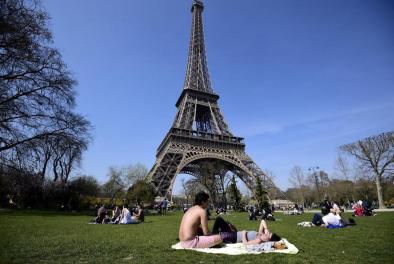Science Source
Attributing human mortality during extreme heat waves to anthropogenic climate change
Here, for the first time, we explicitly quantify the role of human activity on climate and heat-related mortality in an event attribution framework, analysing both the Europe-wide temperature response in 2003, and localised responses over London and Paris.
Study abstract
- Uses publicly-donated computing and performs many thousands of climate simulations of a high-resolution regional climate model
- Simulations generated a comprehensive statistical description of the 2003 event and the role of human influence within it
- Uses the results as an input to ao health impact assessment model of human mortality
- Finds large-scale dynamical modes of atmospheric variability remain largely unchanged under anthropogenic climate change, and hence the direct thermodynamical response is mainly responsible for the increased mortality
- Finds that in the summer of 2003, anthropogenic climate change increased the risk of heat-related mortality in Central Paris by ~70% and by ~20% in London, which experienced lower extreme heat
- Finds that out of the estimated ~315 and ~735 summer deaths attributed to the heatwave event in Greater London and Central Paris, respectively, 64 (±3) deaths were attributable to anthropogenic climate change in London, and 506 (±51) in Paris
- States that such an ability to robustly attribute specific damages to anthropogenic drivers of increased extreme heat can inform societal responses to, and responsibilities for, climate change
Related Content
Real Time Data

Dec 16, 2016 | Climate Prediction Center | NOAA
Europe Weekly, Monthly, 3-Month Temperature Anomaly
Science Source
| World Meteorological Organization
Un/natural Disasters: Communicating Linkages Between Extreme Events and Climate Change
Susan Joy Hassol, Simon Torok, Sophie Lewis et al
Headline

Jul 11, 2016 | US News & World Report
Heat Waves Kill, Now We Know Why
Science Source
| Comptes Rendus Biologies / EU Community Action Programme for Public Health
Death toll exceeded 70,000 in Europe during the summer of 2003
JM Robine, SL Cheung, S Le Roy et al


